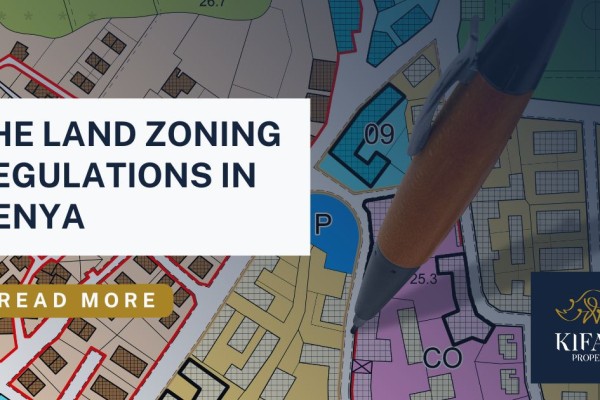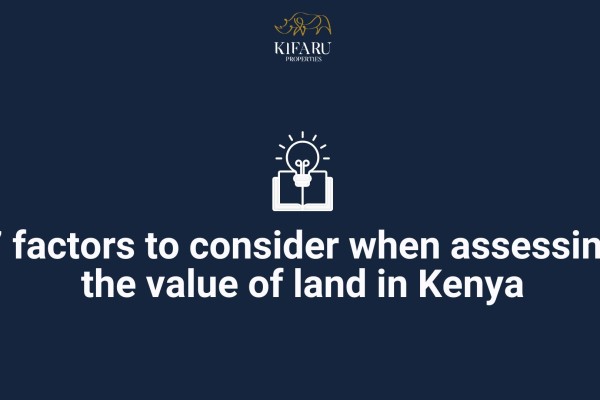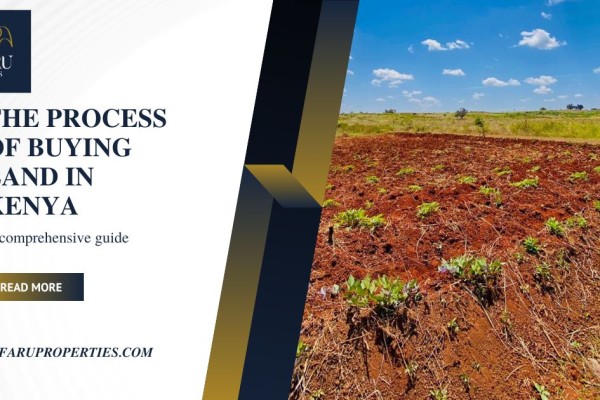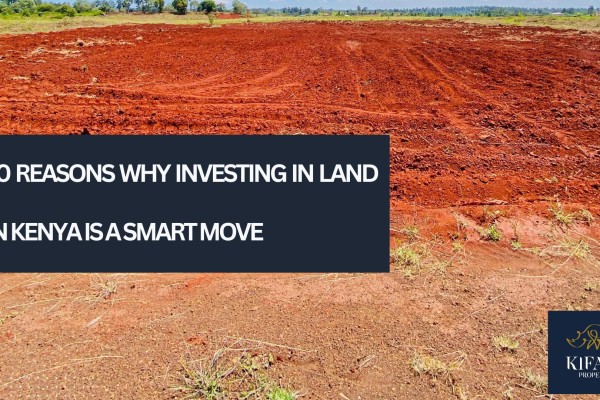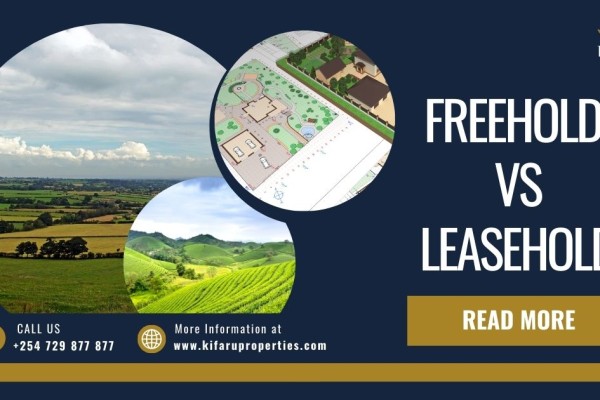- Jul 31, 2024
- Kifaru Meadows
- 905
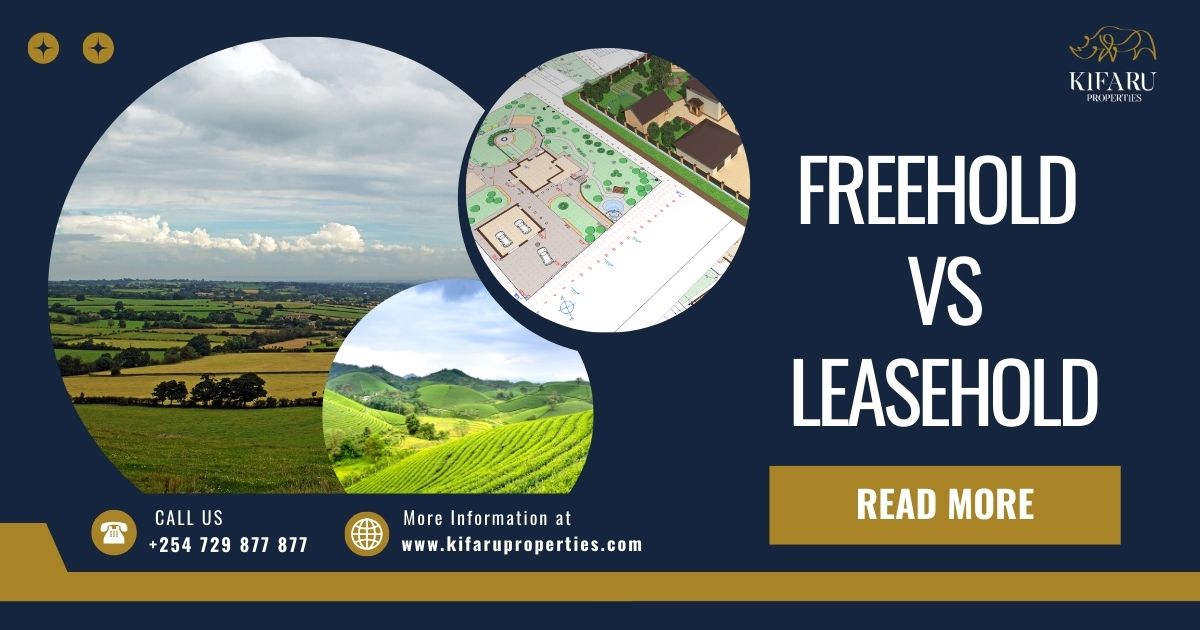
Freehold Land
Freehold land, also known as absolute ownership, provides the owner with perpetual rights to the property. This means the owner has the exclusive right to use, develop, and transfer the land indefinitely. In Kenya, freehold land is considered the highest form of land ownership.
Key Characteristics of Freehold Land:
Perpetual Ownership: The owner holds the land indefinitely, with no time limit on ownership.
Full Control: The owner has complete control over the land, including the freedom to sell, lease, or develop it without requiring approval from other parties.
Inheritance: Freehold land can be passed down to heirs, ensuring long-term family ownership and security.
Fewer Restrictions: There are generally fewer government-imposed restrictions on the use and development of freehold land compared to leasehold land.
Advantages of Freehold Land:
Long-term Security: Since ownership is perpetual, freehold land offers long-term security and stability for property owners.
Investment Value: Freehold properties often appreciate more in value over time compared to leasehold properties due to the unrestricted ownership rights.
Flexibility: Owners can make decisions about their property without needing to adhere to the terms of a lease agreement.
Leasehold Land
Leasehold land, on the other hand, is owned by the government or another entity, and the rights to use the land are granted to individuals or organizations for a specific period, typically 50, 99, or 999 years. At the end of the lease period, the ownership of the land reverts to the lessor, unless the lease is renewed.
Key Characteristics of Leasehold Land:
Limited Ownership Period: The ownership rights are limited to the duration of the lease, which can range from a few decades to nearly a millennium.
Usage Conditions: Leasehold agreements often come with specific conditions and restrictions on how the land can be used and developed.
Renewal and Reversion: At the end of the lease term, the land ownership reverts to the original owner unless a renewal is negotiated.
Ground Rent: Lessees are typically required to pay an annual ground rent to the lessor.
Advantages of Leasehold Land:
Affordability: Leasehold properties are often more affordable than freehold properties, making them accessible to a broader range of buyers.
Government Control: The government can regulate land use through lease conditions, ensuring planned development and adherence to zoning laws.
Urban Development: Leasehold arrangements are common in urban areas where the government seeks to maintain control over land use to manage urban growth and infrastructure development.
Implications for Property Investors and Homeowners
The choice between freehold and leasehold land has significant implications for property investors and homeowners in Kenya.
For Investors:
Capital Appreciation: Freehold properties tend to appreciate more over time, making them a better investment for long-term capital gains.
Income Generation: Both freehold and leasehold properties can generate rental income, but leasehold properties might have lower initial costs, potentially offering higher rental yields.
Risk Management: Leasehold properties come with the risk of lease expiration and non-renewal, which can affect the long-term value and security of the investment.
For Homeowners:
Security: Freehold ownership provides a greater sense of security and permanence, ideal for family homes intended to be passed down through generations.
Flexibility: Freehold ownership allows homeowners to modify and develop their property without lease restrictions.
Affordability: Leasehold properties may offer a more affordable entry point into homeownership, especially in prime urban locations
.
In conclusion, understanding the differences between freehold and leasehold land in Kenya is essential for making informed property decisions. Whether you prioritize long-term security and control or affordability and accessibility, knowing the implications of each type of ownership will help you navigate the Kenyan real estate market more effectively.
